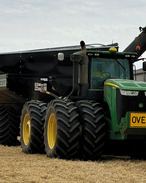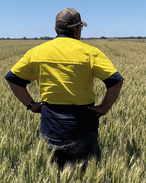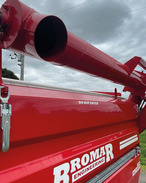Scientists from the University of Melbourne and CSIRO have completed the sequencing of the ryegrass genome, which will provide an understanding of how certain genes construct and deconstruct protein to build herbicide resistance.
The work is part of a Grains Research and Development Corporation (GRDC) co-investment into the Australian Government Department of Agriculture, Fisheries and Forestry's Advancing Pest Animal and Weed Control Solutions program.
The achievement is a global milestone for weed management that is expected to improve the fight against herbicide resistance by influencing optimal management strategies.
Sequencing a genome determines the entirety of a DNA sequence of an organism and its DNA patterns.
University of Melbourne senior lecturer in the Faculty of Science, Dr Alex Fournier-Level, said understanding ryegrass' DNA patterns is the start of being able to identify the presence of resistant genes and how they form.
"In the future, we're wanting to be able to test the DNA of a weed in the paddock, sequence it and diagnose its level of resistant genes," Dr Fournier-Level said.
"In theory, we'll be able to test a grower's ryegrass and tell them in a timely manner which kind of resistance they may have and how best to treat it - as we'll be able to easily identify whether their population has resistant genes present."
Dr Fournier-Level said the information will allow ryegrass to be analysed at the molecular level and would inform which herbicide could best control the weed.
"DNA technology could allow an in-season diagnosis of herbicide resistance, to help growers manage resistant ryegrass varieties early, giving them more opportunity to control the weed," he said.
GRDC senior manager crop protection, Dr Emma Colson, said the sequencing of the ryegrass genome is extremely exciting for herbicide resistance, which costs Australian agriculture between $2.4-4.5 billion annually.
"Weed management is crucial for improving growers' bottom lines and this work will help develop more timely, accurate options to address ryegrass on farm," she said.
More information on this work can be found at: https://appliedgenomics.csiro.au/projects/apgp/
























